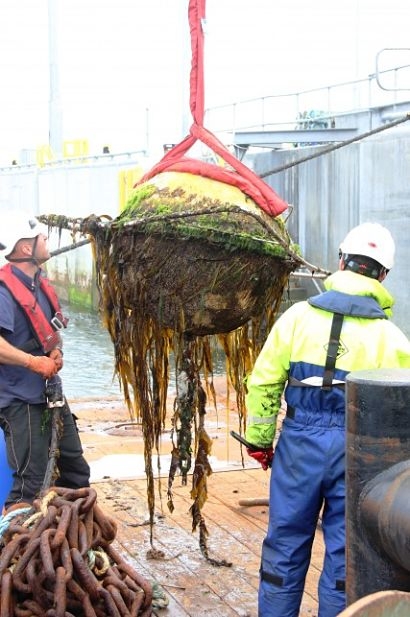
The two organisations are seeking practical strategies to minimise the impacts of biofouling for the marine renewable energy industry. Biofouling involves the settlement and growth of organisms on submerged structures and is a major issue for the industry. It can decrease the efficiency of energy generating devices and also lead to corrosion which can reduce the survivability of marine energy technologies.
The ‘Biofouling in Renewable Energy Environments – Marine’ (BioFREE) project is funded by NERC Knowledge Exchange Fellowship and will focus on developing a network of biofouling experts who will work closely with test sites and technology developers to gather data, share experiences and formulate expertise on biofouling impacts. The ultimate aim is to increase energy efficiency and device reliability within the industry by identifying, assessing and managing fouling organisms located in varying habitats with contrasting organisms and seasons. The project will also identify and promote the positive impacts of the industry on the marine environment by assessing mooring systems designed to enhance habitats for certain species.
The field research will be carried out at EMEC’s wave and tidal energy test sites in partnership with other test centres in North and South America, Asia, and Europe. At these test sites, various arrays of panels populated with anti-fouling coatings will be deployed to develop a standard operating procedure for MRE biofouling monitoring. The Marine Energy Research and Innovation Centre (MERIC) in Chile and The Northwest National Marine Renewable Energy Centre in Oregon are among the research centres that are involved.
“The location of our campus in Orkney and our close working relationship with EMEC will provide maximum opportunities for our scientists to work closely together with developers to improve the knowledge regarding settlement of target fouling organisms” said Joanne Porter, Associate Professor Marine Biology, ICIT.
Andrew Want, Project Lead, Research Associate in Marine Ecology at ICIT, added that the findings will allow recommendations for test centres and developers to minimise the impacts of fouling, chiefly through selective scheduling of deployments and maintenance, in different habitats, to times when the settlement of fouling organisms will be minimal, or their removal will be least costly.
Image: Biofouling of Wave Rider buoy, courtesy of Andrew Want/ICIT
For additional information:

